Emerging from ‘dark time’ in US history: National political activist keynotes Black History Month at Mount Holyoke
|
Published: 02-26-2024 11:58 PM
Modified: 02-27-2024 11:14 AM |
SOUTH HADLEY — When people ask how to navigate this “dark time” in United States history, political strategist and community organizer LaTosha Brown finds inspiration in the stories of Harriet Tubman leading slaves to freedom in the dead of night by following the North Star.
Just as slaves used the darkness to their advantage, Brown — a national leader in the fight for voter’s rights and co-founder of Black Voters Matter — sees the instability in American politics as a chance to radically change the polarized political landscape into a democracy that reflects the diversity and humanity of the country’s constituents. All that’s needed is a North Star to provide guidance.
“In this moment that seems like it’s a dark night, this is the moment that we’ve been waiting on. This is a moment for us to really build a democracy, a reflective democracy, that is representative of us,” Brown said.
Last week, about 35 students, professors and members of the public gathered at the Gamble Auditorium in the Mount Holyoke Art Building to hear Brown give a spirit-filled keynote speech for the university’s Black History Month. Brown honored the theme of Black excellence by telling the story of how she grew Black Voters Matter, a nonprofit that builds political power in communities of color, with nothing but a vision and resilience.
“As a catalyst of change, her na tional and global efforts have been known to organize, inspire and move people into action, not just lip service, enabling them to build power and wealth for themselves and their community,” said Latrin Denson, associate dean of students, community and belonging.
When Brown began her work in grassroots organizing, she had no money or connections to build social movement infrastructure, a term for physical, educational and relational networks that push a social movement forward.
“And I remember years ago, sitting around and having the audacity to believe that we can actually change the system, having the audacity to believe that we can actually raise money and distribute money and help build infrastructure. And at the same time, I didn’t have any,” Brown said.
It’s this vision that empowered Brown to raise over $33 million for Black grassroots organizations, create a network of almost 1,000 nonprofits across 24 states and spread the message of political power in Black communities.
Article continues after...
Yesterday's Most Read Articles
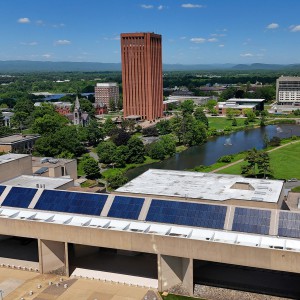 Five UMass Amherst students have visas, student status revoked
Five UMass Amherst students have visas, student status revoked
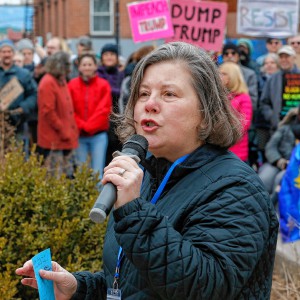 State senators organize Trump defense: Comerford a leader on Response 2025 initiative
State senators organize Trump defense: Comerford a leader on Response 2025 initiative
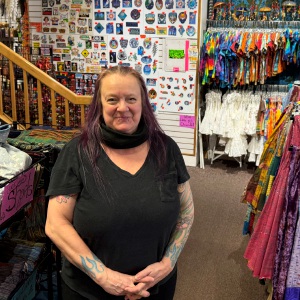 Long-vacant former Faces spot in Northampton gets new tenant
Long-vacant former Faces spot in Northampton gets new tenant
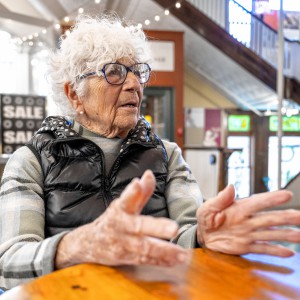 ‘Delightful’ Northampton store shopping guide Jane Hertz, 88, seeking next gig
‘Delightful’ Northampton store shopping guide Jane Hertz, 88, seeking next gig
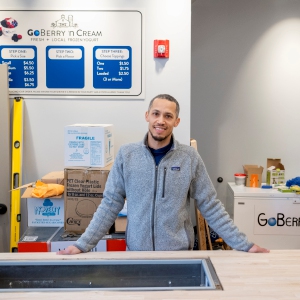 Here come the sweetness: Four new businesses prepping to open in downtown Northampton
Here come the sweetness: Four new businesses prepping to open in downtown Northampton
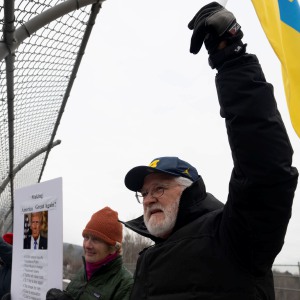 Local ‘Hands Off!’ standouts planned as part of national effort
Local ‘Hands Off!’ standouts planned as part of national effort
“We didn’t follow the money. All of that didn’t start because we had it all figured out. We’re still figuring it out. All of it started because we were looking for our North Star,” Brown said.
The name Black Voters Matter is slightly misleading, since the organization does more than mobilize voters. In fact, Brown clarifies that politics will not save the divided country, nor can people vote themselves out of racism.
Rather, Brown said she believes people’s humanity will inspire rejection of political systems that deny others’ humanity, such as racism and capitalism.
“We are in a culture where we discard people in a space that we no longer think that we need them because we have all been seen as cogs in a capitalist wheel,” Brown said. “But we have to shift that paradigm of how we see each other and how we hold each other.”
While she empathized with the crowd’s lack of excitement for the candidates in the coming presidential election, Brown reminded the audience that elections are more about policies than people. She uses the example of Ronald Regan, whose policies regarding crime and incarceration, still impact society today, especially in communities of color.
“What I do believe is that voting is a very powerful tool for communities to demonstrate, to operate in their agency and to use their voice and to actually push forward a vision,” Brown said. “Voting puts people in office that are creating policies that impact me and my family.”
Brown then warned younger people in the audience of the rhetoric behind “soft life,” a trending phrase on TikTok that romanticizes beauty, comfort and ease. Nothing grows without discomfort and failure, and the lessons Brown learned through challenges is how she empowered so many Black people and grew Black Voters Matter into a $50 million organization.
Rather than a soft life, Brown said she strives for a balanced life full of joy, pain, love and fear. It is the moments of pain, she said, that allow her to love fully.
Mount Holyoke student Aisha Jallo said Brown’s speech convinced her to reject a soft life for a balanced one. As a sociology major, she feared her income would impact her joy until she realized life is more than finances.
“I’m going into a workforce with a different mindset,” Jallo said. “The point is to help the children and the future.”
Mount Holyoke senior Samara Smith said Brown’s speech shifted her attitudes toward the election from looking at party politics to the importance of voting overall.
Brown ended her speech with an acronym for love: leadership, openness and opportunity, vision and excellence. She challenged those in the audience to hold themselves accountable to become the best version of themselves, to lead with humanity rather than identity, and to envision a liberated future.
“I always love the opportunity to actually speak before young people because I actually believe that you all should think of yourselves not necessarily as citizens of an existing nation, but you should start thinking of yourself as founders of a new nation. That you should start to radically reimagine,” she said.
Emilee Klein can be reached at eklein@gazettenet.com.

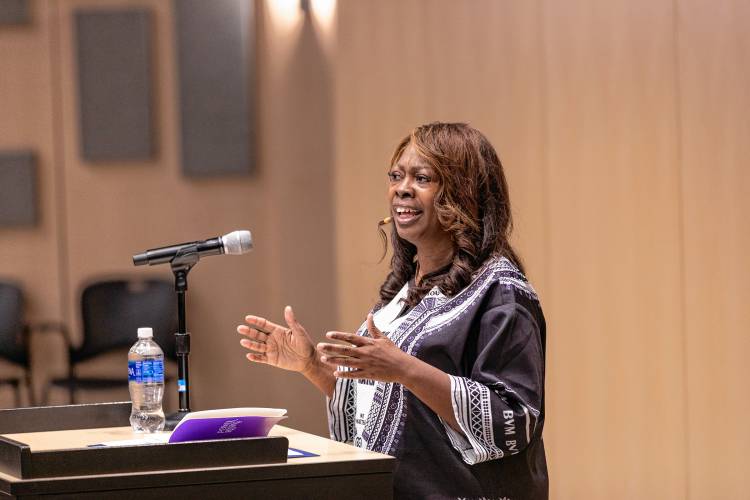
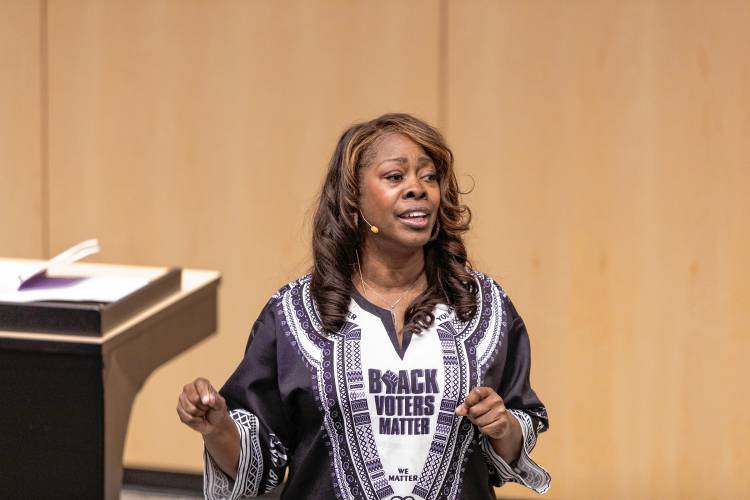
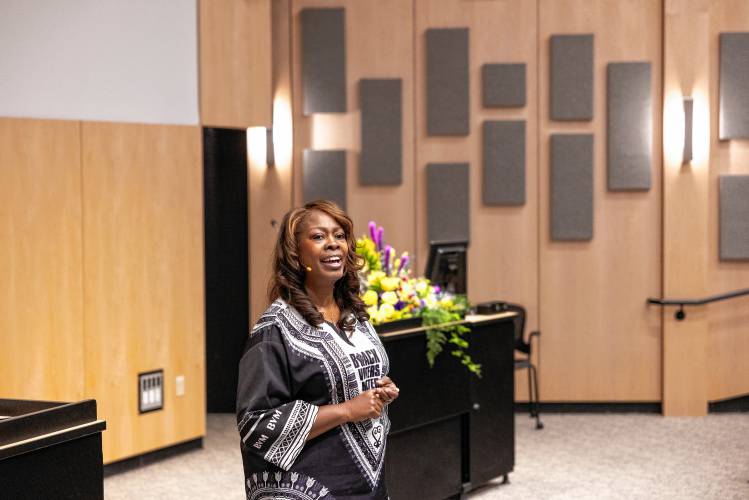





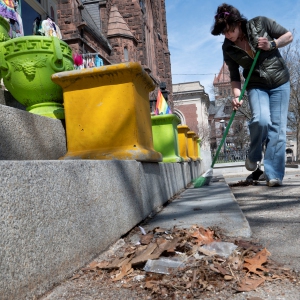 Photo: Spring calling
Photo: Spring calling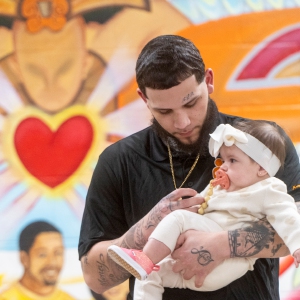 A father’s dream to be the best: Twelve men graduate from Nurturing Fathers program
A father’s dream to be the best: Twelve men graduate from Nurturing Fathers program
